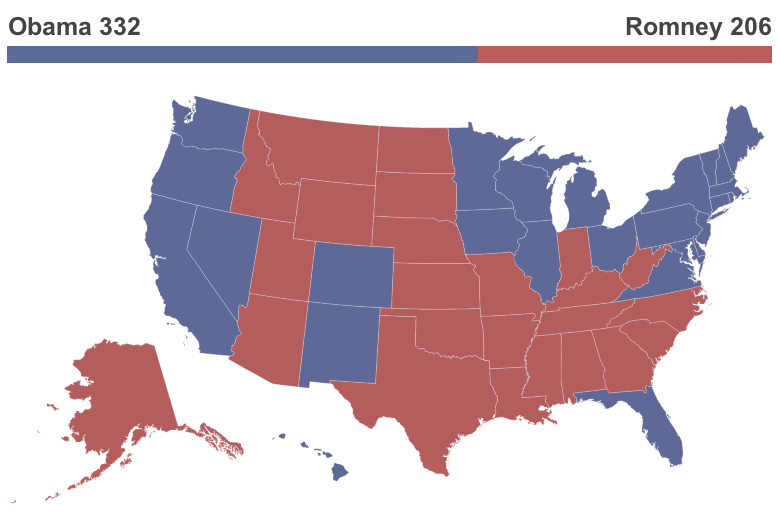In states where President Barack Obama won the 2012 presidential contest, Republican controlled state legislatures are considering plans to reward electoral votes based upon the winner of the most congressional districts.
In Virginia, where President Barack Obama won the state’s 13 electoral votes in 2012 and 2008, a State Senate Subcommittee has recommended Sen. Bill Carrico’s bill this past week during a 3-3 party line vote. According to wdbj7.com, a northern Virginia news organization, his bill would apportion electors according to which presidential candidate carries each of the state’s 11 congressional districts. The site also explains that if the proposed bill would go into effect, Mitt Romney would have won nine electoral votes to President Barack Obama’s four. The bill would completely neuter the fact that Obama won 51 percent of its voters. Carrico says rural areas of the state are rendered irrelevant by populous urban regions. “The last election, constituents were concerned that it didn’t matter what they did, that more densely populated areas were going to outvote them,” he said. However, Virginia Gov. Bob McDonnell has recently said that he would not consider these changes.
Also, according to philly.com, Pennsylvania Senate Majority Leader Dominic Pileggi (R., Delaware) is introducing a similar bill in a memo circulated last Monday to colleagues. He said that he intends to introduce legislation to change the way Pennsylvania gives out its 20 electoral votes. “The major goal remains the same – to more closely align our electoral vote with our popular vote,” said Pileggi spokesman Erik Arneson, adding that the senator plans to formally introduce the bill early next year. According to philly.com, Pileggi’s new plan would award two votes to the winner of the popular vote statewide and then divide the remaining 18 based on the percentage of the popular vote each presidential candidate received. Under this bill, his memo noted, President Obama would have won 12 electoral votes to eight electoral votes for Republican challenger Mitt Romney in the Nov. 6 election.
Finally, according to the Milwaukee Wisconsin Journal Sentinel, Republican Governor Scott Walker was lukewarm when introduced to the idea of electoral votes being apportioned by congressional district. “To me, it’s an interesting concept, it’s a plausible concept, but it’s not one where I’m convinced either of its merits or lack thereof,” he said in a recent interview at the governor’s mansion in Maple Bluff. Reince Priebus, Chairman of the Republican National Committee said: “I think it’s something that a lot of states that have been consistently blue that are fully controlled red ought to be looking at,” Priebus said of the plan to change how electoral votes are granted. Such a system “gives more local control” to the states, he argued.
Meanwhile, Democrats in these states have criticized the plans. Democrats in Wisconsin have promised to fight the changes to the electoral system if Republicans advance one. “Once again they’re changing the rules because they lost the game – that’s what this boils down to,” said Rep. Jon Richards (D-Milwaukee). Milwaukee Mayor Tom Barrett recently told supporters in an email they need to halt any attempt to change how states give out their electoral votes. “The Republicans want to rig the game. They know what they’re doing and we need to stop them,” he wrote in his email. In Pennsylvania, State Sen. Daylin Leach (D., Montgomery), contending that Pileggi’s new proposal is no better than the old one, called it sour grapes. “The remedy for losing an election is not to change the rules of that election,” Leach said Monday, “but to offer more compelling candidates who actually have a compelling message.”
In conclusion, the Republicans are making a very smart political calculation. They realize that voters supporting the Democratic party are located in urban districts. Urban districts are usually small in terms of land mass and are more densely populated. Therefore, since Republican voters are typically located in more rural districts, they occupy more land mass and more congressional districts. These moves will be an uphill climb for Democrats. Also, these moves will be harder for Democrats to reverse since the Republicans have made large gains in statehouses and governorships since 2010.




